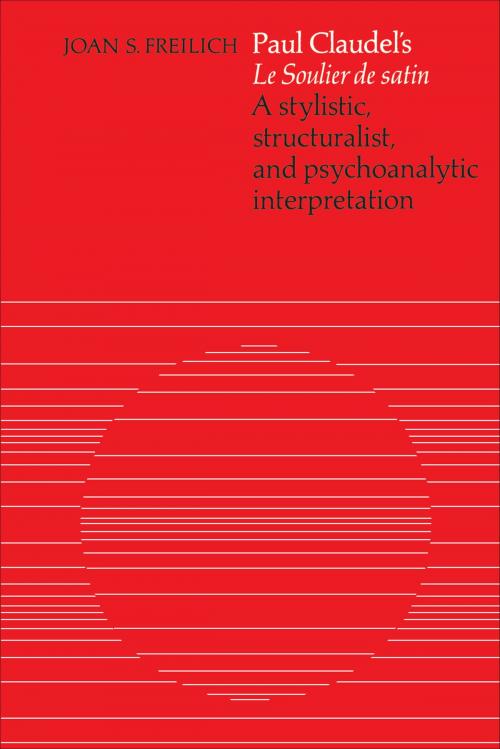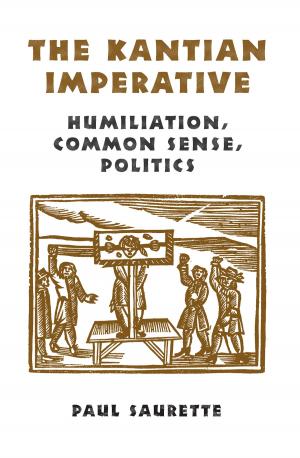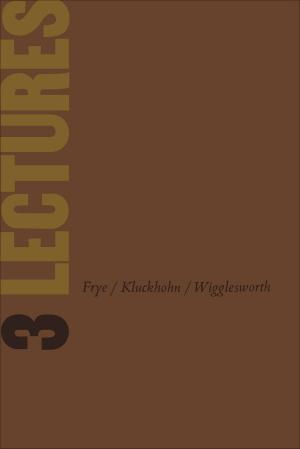Paul Claudel's 'Le Soulier de satin'
A Stylistic, Structuralist, and Psychoanalytic Interpretation
Fiction & Literature, Literary Theory & Criticism, French, European, Theory| Author: | Joan S. Freilich | ISBN: | 9781487597276 |
| Publisher: | University of Toronto Press, Scholarly Publishing Division | Publication: | December 15, 1973 |
| Imprint: | Language: | English |
| Author: | Joan S. Freilich |
| ISBN: | 9781487597276 |
| Publisher: | University of Toronto Press, Scholarly Publishing Division |
| Publication: | December 15, 1973 |
| Imprint: | |
| Language: | English |
Claudel's most important work, Le Soulier de satin, has confused and puzzled readers since it first appeared. Joan S. Freilich's intensive examination of Claudel's imagery combined stylistic , structuralist, and psychoanalytic analyses. These are new methods that have been developed over the past two decades and are based on an examination of the text from the reader's point of view. This is a radical break with conventional literary studies which examine literature biographically or comparatively, i.e., focusing on the relationship of the text to other works written by the same or different authors, to the author's life and historical setting, or to various linguistic norms.
Recent stylistic studies have as their point of departure the reader's perception of certain elements of style as unpredictable, and thus 'marked,' in an otherwise unmarked context; such studies seek to determine which of these 'stylistic devices' are present within a given text and what their effect is on the reader's response to the work.
Structuralist analyses involve the identification and description of the basic system of concepts around which the literary text is constructed. This fundamental system, or structure, is the source of the reader's sense that the text is a coherent whole, but it is itself an abstraction and can be perceived only through one or more of the variants through which it is actualized in the text.
Finally, the psychoanalytic interpretation of a literary work attempts to elucidate the most fundamental effective concepts conveyed through the text, concepts which evoke corresponding emotional responses in the reader and which, although often unrecognized, are thus responsible for much of his interest in, and appreciation of, the work.
Stylistic and structuralist methods have been used together in recent years, but this study of the Soulier de satin represents the first time that psychoanalytic interpretation has been included as part of a stylistic and structuralist analysis in which the focus throughout is on the relationship of the text to the reader and the point of departure is the reader's response to the work. Furthermore, most Claudelian criticism has been vague and general in nature but this work is specific and represents an unusual and unique contribution.
Claudel's most important work, Le Soulier de satin, has confused and puzzled readers since it first appeared. Joan S. Freilich's intensive examination of Claudel's imagery combined stylistic , structuralist, and psychoanalytic analyses. These are new methods that have been developed over the past two decades and are based on an examination of the text from the reader's point of view. This is a radical break with conventional literary studies which examine literature biographically or comparatively, i.e., focusing on the relationship of the text to other works written by the same or different authors, to the author's life and historical setting, or to various linguistic norms.
Recent stylistic studies have as their point of departure the reader's perception of certain elements of style as unpredictable, and thus 'marked,' in an otherwise unmarked context; such studies seek to determine which of these 'stylistic devices' are present within a given text and what their effect is on the reader's response to the work.
Structuralist analyses involve the identification and description of the basic system of concepts around which the literary text is constructed. This fundamental system, or structure, is the source of the reader's sense that the text is a coherent whole, but it is itself an abstraction and can be perceived only through one or more of the variants through which it is actualized in the text.
Finally, the psychoanalytic interpretation of a literary work attempts to elucidate the most fundamental effective concepts conveyed through the text, concepts which evoke corresponding emotional responses in the reader and which, although often unrecognized, are thus responsible for much of his interest in, and appreciation of, the work.
Stylistic and structuralist methods have been used together in recent years, but this study of the Soulier de satin represents the first time that psychoanalytic interpretation has been included as part of a stylistic and structuralist analysis in which the focus throughout is on the relationship of the text to the reader and the point of departure is the reader's response to the work. Furthermore, most Claudelian criticism has been vague and general in nature but this work is specific and represents an unusual and unique contribution.















